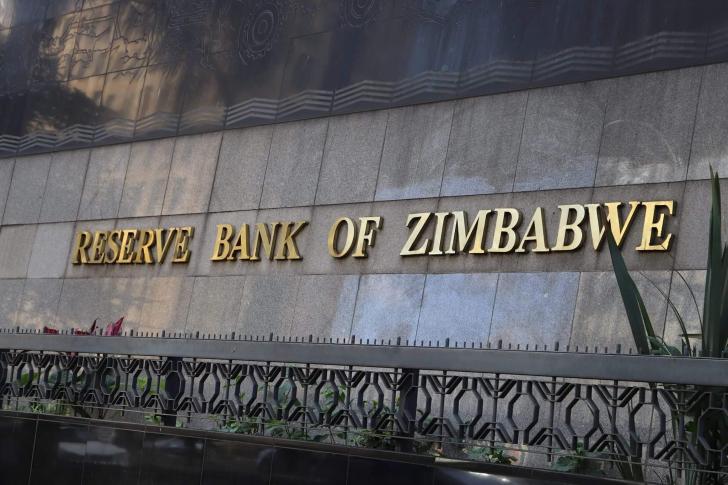News / National
RBZ defends Zimbabwe forex surrender requirements
01 Jun 2025 at 13:37hrs |
0 Views

RBZ,Forex,Retention
The Reserve Bank of Zimbabwe (RBZ) has reaffirmed the importance of current foreign exchange surrender requirements, emphasizing their critical role in supporting key economic sectors that lack direct access to foreign currency.
In its 2025 Monetary Policy Statement, the central bank revised the foreign currency retention rate for exporters from 75 percent to 70 percent. This means exporters must now surrender 30 percent of their foreign currency earnings to the RBZ in exchange for the local currency, ZimGold (ZiG).
The retention policy aims to strengthen critical reserves backing ZiG, promote stability in the interbank foreign exchange market, and increase foreign currency availability to priority sectors that do not generate their own forex.
"The retained foreign currency is channelled to sectors requiring vital inputs but lacking direct forex earnings," the RBZ explained.
Several manufacturing and mining firms have petitioned for a reduction in the mandatory surrender rate to between 5 and 10 percent, citing concerns that the current 30 percent requirement undermines profitability and limits reinvestment. Exporters argue that many essential inputs - such as fuel, raw materials, equipment, and spare parts - are priced in foreign currency, making the surrender requirement burdensome.
The Horticultural Development Council has previously criticized the retention policy as "unfair and counterproductive," pointing to a significant mismatch between reduced forex retention and high US dollar-denominated costs.
However, the RBZ maintains that the retention policy ensures a stable and sufficient foreign exchange supply in the interbank market to meet legitimate import needs, particularly for sectors that do not generate foreign currency.
Medical imports and industrial inputs remain among the top priorities for foreign currency allocation, as the policy seeks to stimulate economic growth by safeguarding these essential sectors.
Speaking at the inaugural European Union-Zimbabwe Business Forum, RBZ Deputy Governor Dr Innocent Matshe, representing Governor Dr John Mushayavanhu, highlighted the policy's strategic importance.
"Export surrender requirements are critical for redistributing foreign currency in this multi-currency environment, ensuring availability for critical imports," Dr Matshe said. "Sectors that do not generate foreign currency rely on this redistribution. The current 30 percent surrender aligns with the prevailing proportion of ZiG transactions in the economy, and adjustments will continue as these proportions shift."
Dr Matshe assured exporters that they would continue receiving the true value for their exports, reinforcing the central bank's commitment to market stability.
Beyond market functioning, the retention policy is instrumental in building the foreign currency reserves needed to underpin the value of ZiG. Robust reserves create a buffer against external shocks and facilitate international transaction settlements, fostering confidence in Zimbabwe's financial system.
As Zimbabwe navigates complex economic challenges, the RBZ's foreign exchange surrender framework remains a cornerstone of monetary policy aimed at balancing growth, stability, and sustainability.
In its 2025 Monetary Policy Statement, the central bank revised the foreign currency retention rate for exporters from 75 percent to 70 percent. This means exporters must now surrender 30 percent of their foreign currency earnings to the RBZ in exchange for the local currency, ZimGold (ZiG).
The retention policy aims to strengthen critical reserves backing ZiG, promote stability in the interbank foreign exchange market, and increase foreign currency availability to priority sectors that do not generate their own forex.
"The retained foreign currency is channelled to sectors requiring vital inputs but lacking direct forex earnings," the RBZ explained.
Several manufacturing and mining firms have petitioned for a reduction in the mandatory surrender rate to between 5 and 10 percent, citing concerns that the current 30 percent requirement undermines profitability and limits reinvestment. Exporters argue that many essential inputs - such as fuel, raw materials, equipment, and spare parts - are priced in foreign currency, making the surrender requirement burdensome.
The Horticultural Development Council has previously criticized the retention policy as "unfair and counterproductive," pointing to a significant mismatch between reduced forex retention and high US dollar-denominated costs.
However, the RBZ maintains that the retention policy ensures a stable and sufficient foreign exchange supply in the interbank market to meet legitimate import needs, particularly for sectors that do not generate foreign currency.
Medical imports and industrial inputs remain among the top priorities for foreign currency allocation, as the policy seeks to stimulate economic growth by safeguarding these essential sectors.
Speaking at the inaugural European Union-Zimbabwe Business Forum, RBZ Deputy Governor Dr Innocent Matshe, representing Governor Dr John Mushayavanhu, highlighted the policy's strategic importance.
"Export surrender requirements are critical for redistributing foreign currency in this multi-currency environment, ensuring availability for critical imports," Dr Matshe said. "Sectors that do not generate foreign currency rely on this redistribution. The current 30 percent surrender aligns with the prevailing proportion of ZiG transactions in the economy, and adjustments will continue as these proportions shift."
Dr Matshe assured exporters that they would continue receiving the true value for their exports, reinforcing the central bank's commitment to market stability.
Beyond market functioning, the retention policy is instrumental in building the foreign currency reserves needed to underpin the value of ZiG. Robust reserves create a buffer against external shocks and facilitate international transaction settlements, fostering confidence in Zimbabwe's financial system.
As Zimbabwe navigates complex economic challenges, the RBZ's foreign exchange surrender framework remains a cornerstone of monetary policy aimed at balancing growth, stability, and sustainability.
Source - Sunday News
Join the discussion
Loading comments…
































